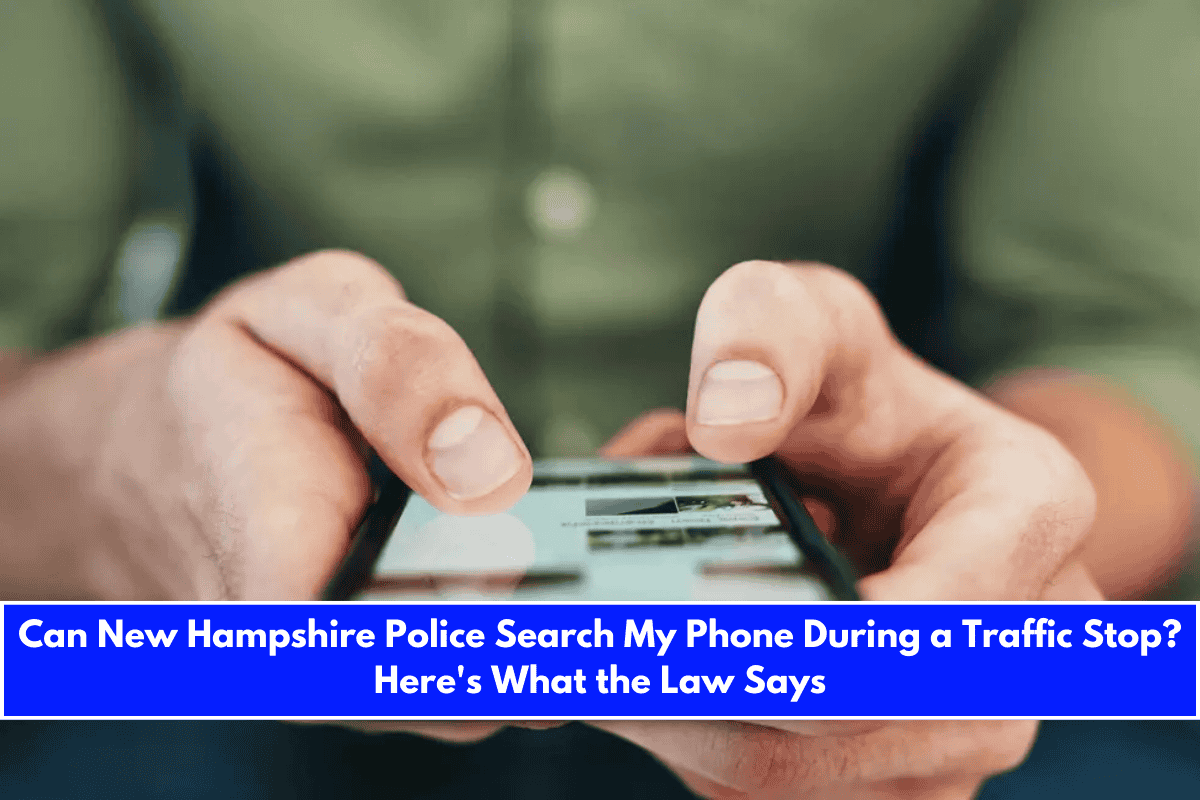In New Hampshire, police cannot search your cell phone during a traffic stop without a warrant in almost all situations. This protection is rooted in both federal and state law:
- The U.S. Supreme Court has ruled that police must obtain a warrant before searching a suspect’s cell phone, recognizing the significant privacy interests at stake.
- New Hampshire law goes even further, specifically prohibiting warrantless searches of electronic devices in civil cases as well.
Consent Exception
There is one major exception: consent. If you voluntarily give police permission to search your phone, they do not need a warrant. However, New Hampshire law requires that:
- Police must inform you of your right to refuse consent.
- Refusing consent cannot be used as a basis for arrest or further detention.
- Any consent must be documented, either by your signature on a consent form or by a video/audio recording at the time consent is given.
- If you refuse, police must stop asking for your consent and cannot continue to pressure you.
Other Exceptions (Rare in Traffic Stops)
There are a few narrowly defined exceptions to the warrant requirement, but they rarely apply to cell phones during a routine traffic stop:
- Search incident to arrest: If you are lawfully arrested, police may search your person and immediate surroundings, but even then, searching your phone generally still requires a warrant.
- Exigent circumstances: If police believe that waiting for a warrant would result in destruction of evidence or imminent harm, they may be able to search without a warrant, but this is a high legal bar and rarely applies to cell phones in traffic stops.
- Plain view doctrine: If incriminating evidence is plainly visible without opening or unlocking your phone, police may seize it, but cannot search its contents without a warrant.
What If Police Search My Phone Without a Warrant or Consent?
Any evidence obtained from an illegal search of your phone—meaning without a warrant, valid consent, or a rare exception—cannot be used against you in court. This is a fundamental protection under the Fourth Amendment and the New Hampshire Constitution.
Location Data and Third-Party Information
There is ongoing legal debate about whether police need a warrant to obtain cell phone tracking data from wireless providers. New Hampshire’s Attorney General has argued that there is no expectation of privacy in data shared with third parties, but privacy advocates and state law generally require a warrant for this type of search as well.
Summary Table: Police Search of Your Phone During a Traffic Stop in New Hampshire
| Situation | Can Police Search Your Phone? | Notes |
|---|---|---|
| Without a warrant or consent | No | Protected by state and federal law |
| With your voluntary, informed consent | Yes | Consent must be documented, and you can refuse |
| After arrest (incident to arrest) | Rarely, usually still need warrant | Some exceptions for officer safety |
| Exigent circumstances | Only if immediate harm/evidence loss | Rarely applies to phones |
| Plain view (locked phone) | No search of contents without warrant | Can seize but not search |
Police in New Hampshire generally cannot search your phone during a traffic stop without a warrant or your informed, voluntary consent. You have the right to refuse, and that refusal cannot be held against you. If police search your phone illegally, any evidence they find is likely inadmissible in court.
Sources:
- https://www.anzalonelegal.com/illegal-search-and-seizure.html
- https://caselaw.findlaw.com/court/nh-supreme-court/1874720.html
- https://www.nhdefender.com/nh-dwi-resource-center/illegal-traffic-stops/











Leave a Reply